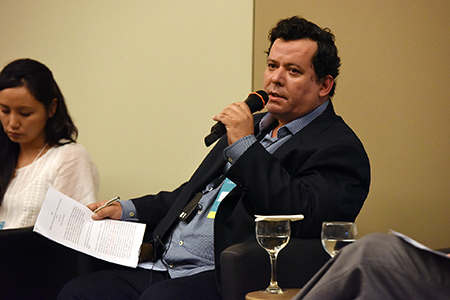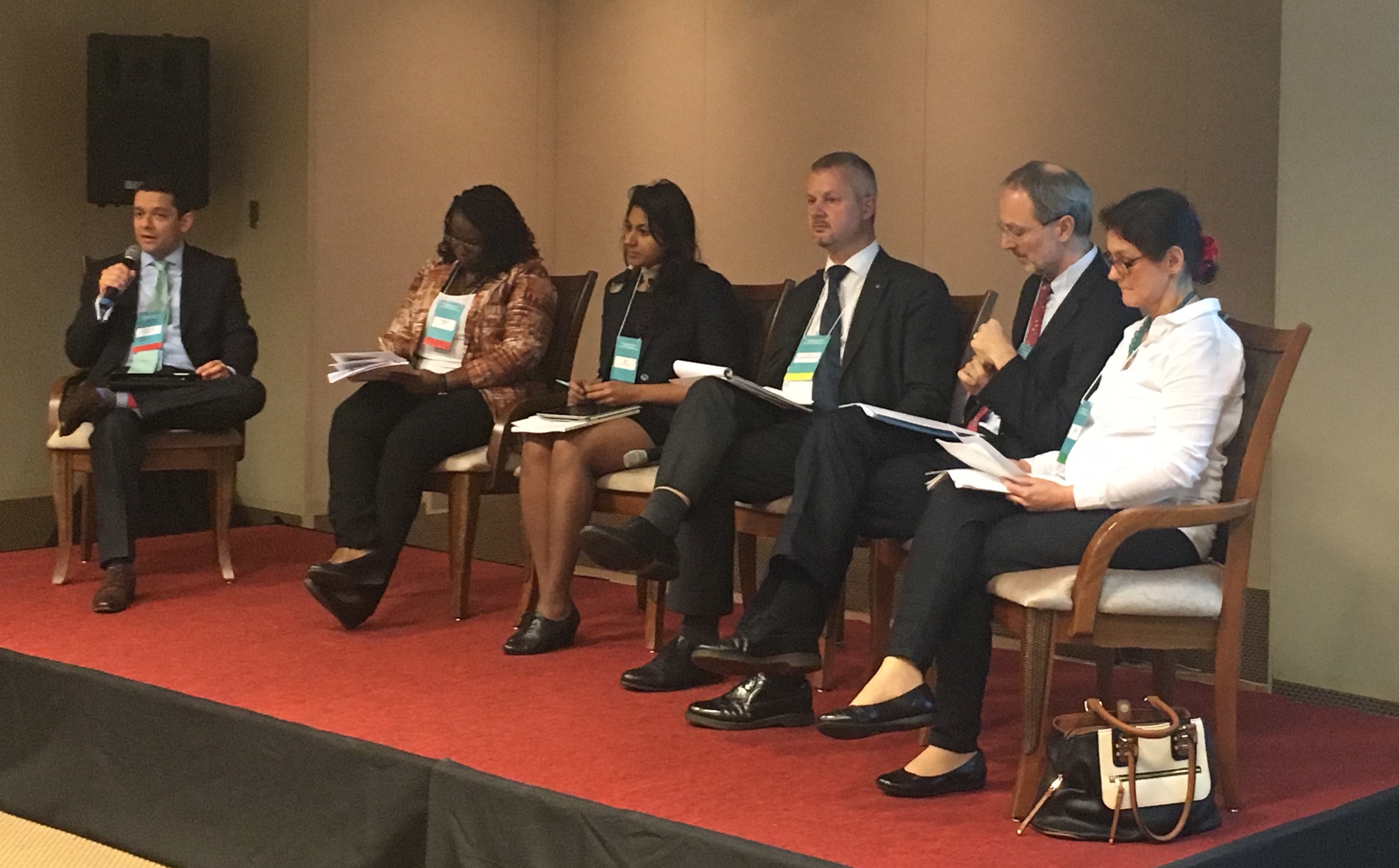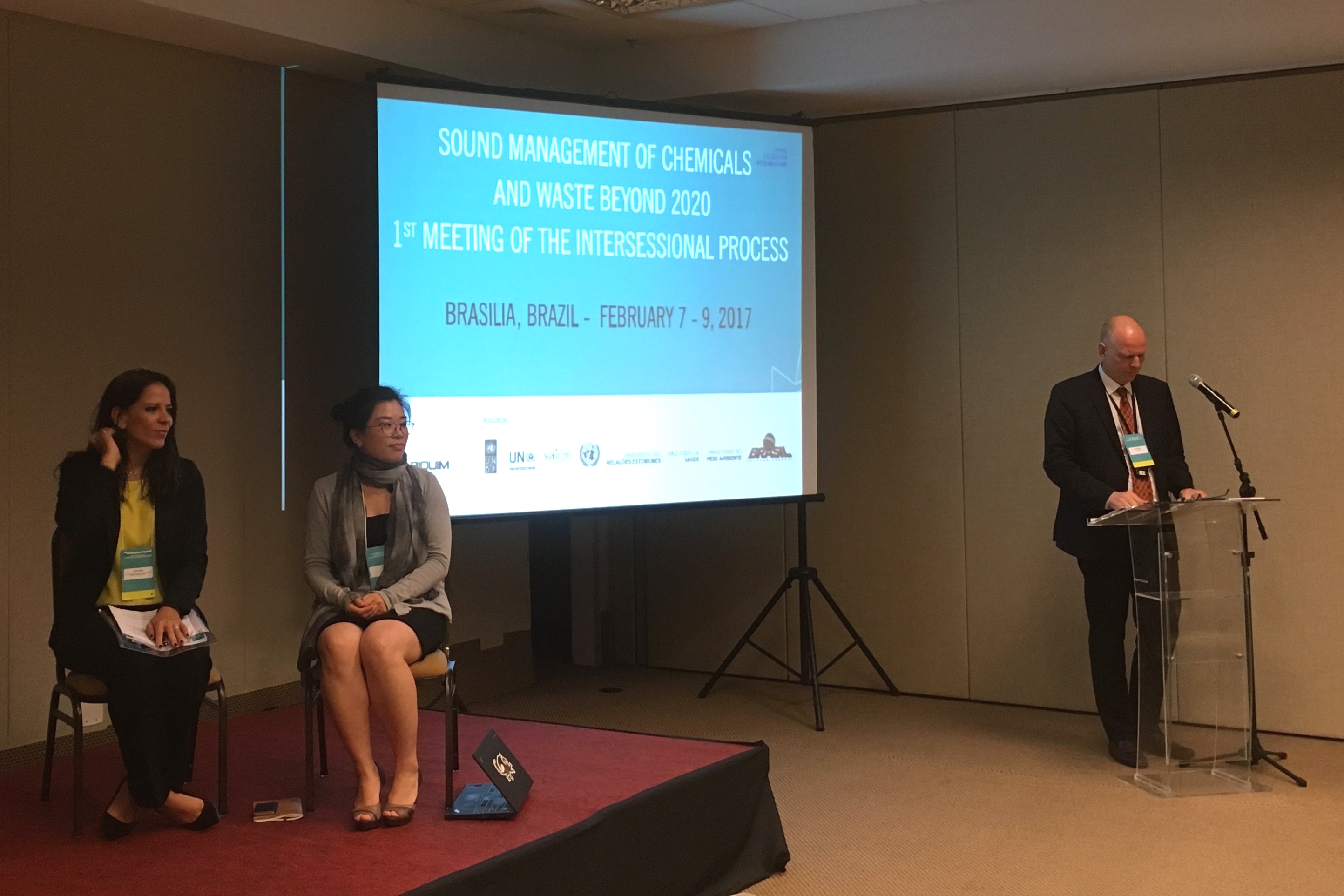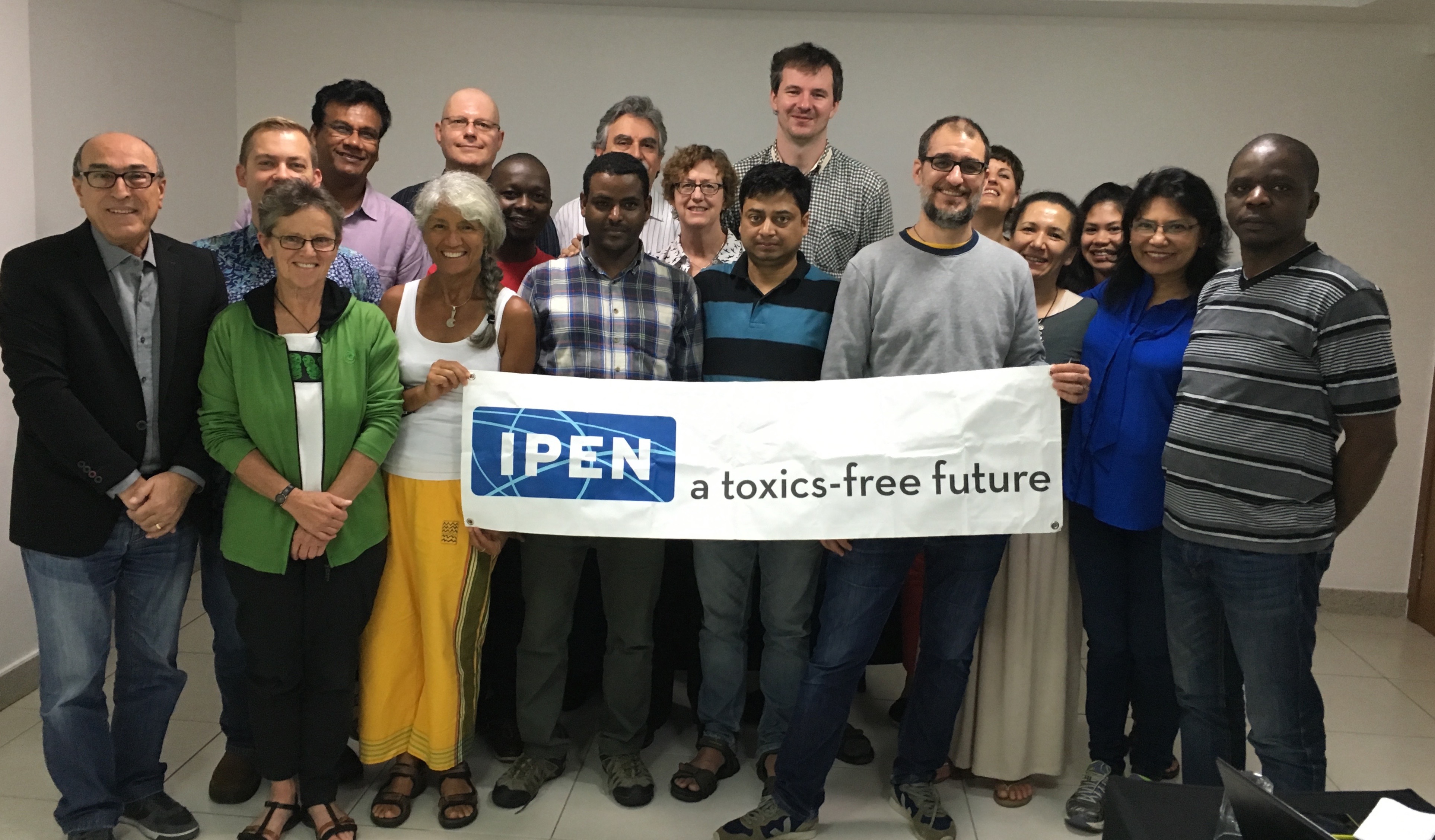IPEN Closing Statement
9 February, given by Dr. Olga Speranskaya, IPEN Co-Chair:
IPEN would like to thank the Co-Chairs for leading the meeting and the Secretariat for preparing all the documents and for arranging a fruitful and open discussion between stakeholders. We support the delegate from Zambia and urge the need to translate the outcome document of this meeting into all UN languages to ensure active participation of all countries and stakeholders in providing comments. We all are closely watched by our constituencies who are expecting meaningful decisions from this and other meetings and papers that will be held within this preparatory process towards the ICCM5. Women, children, indigenous peoples, and victims of toxic chemicals pollution urgently need meaningful decisions to reduce the exposure. They are depending on us. IPEN is committed to continue working with all the participants and stakeholders within SAICM process to achieve the toxic-free future.
High Level Segment
7 February: Jeffer Castelo Branco, Director of Associação de Combate aos POPs (ACPO) in Brazil, spoke on the High Level Panel at the meeting. The Panel, organized by the Government of Brazil. was convened to address "A Holistic Approach to Addressing Sustainable Development." Mr. Castelo Branco, the only civil society representative on the Panel, spoke about the impact of toxic chemicals on workers' health and the environment and the reality of the chemical industry's failure to protect workers' health.

Informal Dialogues
7 February: IPEN Co-Chair Dr. Olga Speranskaya was a panelist at the Informal Dialogue: Looking ahead: SAICM and the Sound Management of Chemicals and Waste in the Light of Recent Developments. The dialogue was meoderated by Mr. Fernando Goméz and other panelists included Ms. Sabaa Khan (University of Eastern Finland), Mr. Marco Mensink (European Chemical Industry Council), Mr. Bob Diederich (OECD), and Ms. Christabel Mibenge (Ministry of Health, Health Promotion, Environment and Social Determinents, Zambia). Amongst other important messages, Dr. Speranskaya stated, "Industry is responsible to provide information about chemicals they produce and use. Information on health and environment cannot be confidential. No corporate interests could justify the need to keep information on toxic chemicals undisclosed.' Read Dr. Speranskaya's statement here.

7 February: Ms. Qian Cheng, Deputy Head of Toxics Campaign for Greenpeace East Asia, was a panelist at the Informal Dialogue: Challenges and Opportunities for Sustainable Chemistry to Contribute to Sustainable Development. Mr. Achim Halpaap (United Nations Environment) moderated the discussion, and Ms. Jutta Emig (German Ministry of Environment), Ms. Marina Mattar (Brazilian Chemical Industry Association), and Ms. Noluzuko Gwayi (Department of Environmental Affairs, South Africa) were additional panelists. Read Qian Cheng's statement here.

The 1st meeting of the intersessional process for considering SAICM and the sound management of chemicals and waste beyond 2020 is being held in Brasilia, Brazil, from 7 - 9 February, 2017. Numerous IPEN Participating Organization representatives are participating. For details about IPEN's activities at the meeting, please see the tabs above. For more information (including an agenda, other meeting documents and more), see the SAICM website.

The IPEN Quick Views document is a summary statement of some IPEN views about issues that will be taken up at the 1st meeting of the intersessional process for considering SAICM and the sound management of chemicals and waste beyond 2020, including, among others, financing, a multi-stakeholder and multi-sectoral approach, raising SAICM's political priority, responding to new and emerging policy issues, and Agenda 2030. Read the Quick Views here.
24 January: IPEN Beyond 2020 Perspectives
français / русский / español / اللغة العربية
The Strategic Approach to International Chemicals Management (SAICM) is the only international agreement that addresses the full range of known and newly discovered health and environmental concerns associated with the production and use of chemicals. The 2006 decision that established SAICM expires in 2020 and now there is a global process to determine what comes next. IPEN and Pesticide Action Network collaborated to produce a series of documents that highlight civil society views on key topics for the Beyond 2020 process. The papers describe SAICM’s importance, how chemical safety can contribute to sustainable development, and how actions should be financed. In addition, the papers deal with the relationship between women and chemical safety, how the industry should reduce and eliminate hazard through design, and the connection between human rights and chemical safety. Read all the papers here.


